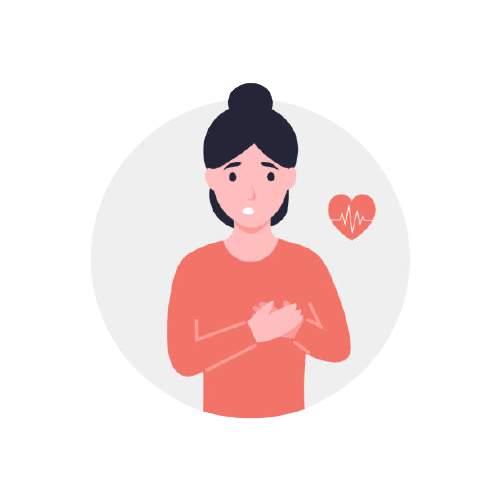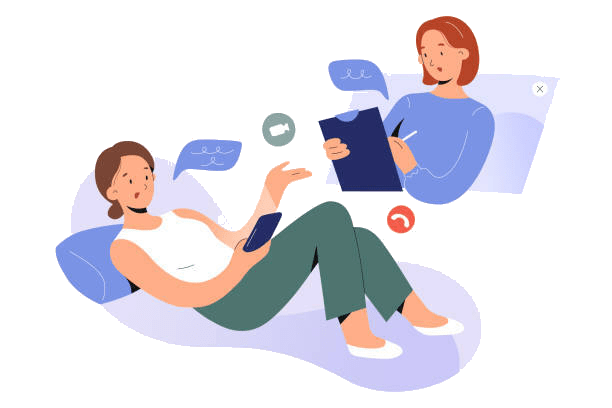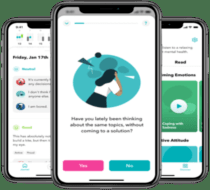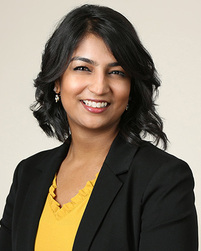Online Palpitations Counseling | Best therapist for Palpitations help
- Affordable and confidential Palpitations counseling sessions
- Video calls or chat sessions with Counsellors/ Psychologists specialized in Palpitations issues
- Improve your mental wellbeing whenever and wherever you want
Begin Therapy
Consult online with best Therapist
"*" indicates required fields
A ‘Better’ Model for Palpitations Counseling
Mantracare is with you on the journey to heal your Palpitations. We will help you right from knowing the root causes of your Palpitations to learning healthy coping mechanisms. Our therapies are 100% online and are conducted via video call or messages. So, feel free to take sessions wherever, whenever you need it
Specialized Therapists
As per your story and case, we assign the best counselors experienced in Palpitations issues. They work with you proactively to understand and address the root cause of your Palpitations, hopelessness, and persistent sadness.
Affordable & Effective
We believe that therapies should be driven more by “Need” than “ability to pay”. Our online sessions are 90% less expensive than face-to-face therapy. Online counseling starts at just $10.
Palpitations Self Care
We provide you continuous Palpitations help with self-care tools, mental healing videos, chat groups, meditations, breathing exercises, and more. Our therapists are available 24/7 via messages to provide care, whenever and wherever you need it.

Best Palpitations Counseling, Now in Your Pocket
Our therapists or counselors are available in all parts of the world, accessible via an easy-to-use mobile application. Our matching experts take your preferences into consideration and connect you with therapists specialized in Palpitations issues. Moreover, there are hundreds of free self-help tools on our app, available 24×7.

How it works
After filling out our questionnaire, you will be matched with a Palpitations counselor based on your needs and preferences. You and your counselor will get your own secure and private “therapy room” where you can message your counselor at any time wherever you are. You can also schedule a session so speak live with your counselor over video or phone.
You can write or talk about Palpitations, the things going on in your life, ask questions, and discuss the challenges you’re facing and your counselor will provide feedback, insights, and guidance. Together you’ll work towards making a positive change in your life, accomplishing your goals, and overcoming your Palpitations.

Signup for Palpitations counseling
Just fill up a 5-minute online form to tell us about your Palpitations symptoms and treatment expectations.

Meet your Therapist
Based on your preferences and neet, we will connect you with Palpitations counselors that are available 24/7 to you via call or chat.

Connect to our app
Heal yourself with video or chat counseling sessions available in the app. Access helpful self-care tools on our app to help you heal your depression, and take control of your life
Meet the best Palpitations Therapists
MantraCare psychologists help you counter Palpitations through a combination of positive conversations, exercises, and meditations. Our Palpitations therapy services are the better traditional face-to-face counseling in multiple ways:
- Over 5,000 counselors & therapists with expertise in Palpitations and other areas
- All counselors are licensed, trained, accredited, and highly experienced
- Match with an available counselor who is the best fit for your Palpitations needs
- Unlimited private one on one communication with your therapist
- Gain access to constructive, educational group webinars on Palpitations

A Complete Guide On Palpitations
Understanding Palpitations
Palpitations are the sensations of your heart pounding too quickly or too forcefully, missing a beat, or fluttering. Heart palpitations may be felt in your chest, throat, or neck.
They may be annoying or terrifying. However, they are rarely serious or dangerous, and they typically go away on their own. They’re usually brought on by stress and worry, or by consuming too much coffee, nicotine, or alcohol. They can also occur during pregnancy.
Palpitations can be an indication of a more severe cardiac disease in rare situations.
Heart palpitations might be alarming, but they’re typically nothing to worry about. They may be a sign of a more serious cardiac issue, such as an irregular heartbeat (arrhythmia), which may necessitate treatment in rare circumstances
Symptoms of Palpitations
Heart palpitations might make you feel like your heart is:
- Beat skipping
- Rapidly fluttering
- A heartbeat is too rapid
- Pounding
- Flip-flopping
Heart palpitations may be felt in your throat or neck, as well as in your chest. They might happen when you’re active or when you’re not.
Causes of Palpitations
There might be a lot. Palpitations are usually connected to your heart or have an unknown origin. The following are examples of non-heart-related causes:
- Anxiety, fear, and tension are examples of strong emotions. They frequently occur during manic episodes.
- Intensive physical exercise
- Caffeine, nicotine, alcohol, or illicit substances like cocaine and amphetamines are all examples of stimulants.
- Thyroid illness, low blood sugar, anemia, low blood pressure, fever, and dehydration are examples of medical disorders.
- Hormonal changes occur during menstruation, pregnancy, or the months leading up to menopause. Palpitations might be a symptom of anemia during pregnancy.
- Diet pills, decongestants, asthma inhalers, and certain medicines needed to prevent arrhythmias (a dangerous cardiac rhythm problem) or treat an underactive thyroid are all examples of medications.
- Some nutritional and herbal supplements
- Electrolyte levels that are abnormal
- After a big meal high in carbs, sugar, or fat, some people have palpitations. Eating meals high in monosodium glutamate (MSG), nitrates, or sodium can sometimes trigger them.
Diagnosis Of Palpitations
Palpitations can be difficult to identify since they are frequently intermittent and may not be present when the patient seeks medical attention. The history and physical examination, like with other medical disorders, are crucial in determining the diagnosis. The health care provider may ask the following questions to better comprehend the patient’s sensations:
Are the palpitations a one-time occurrence or a missed beat, or do they come in waves that last minutes or hours? What causes them to light up? What causes them to vanish?
What additional symptoms, such as shortness of breath, chest discomfort, sweating, nausea and vomiting, lightheadedness, and syncope, might be present?
A medical history that includes a history of heart or lung illness, as well as prescription medicines, is crucial.
It will be beneficial to know if any other medications or substances are being utilized. Caffeine, over-the-counter medicines, herbal treatments, alcohol, and illicit substances all have the potential to harm the heart (for example, cocaine, amphetamines, and others).
A physical examination will usually focus on the heart and lungs, although it may also include other organ systems if necessary.
Blood testing may be useful in determining whether there are any underlying medical problems that cause palpitations. A complete blood count (CBC) or hemogram may be performed to check for anemia (low red blood cell count), electrolytes, renal, and thyroid function, among other things.
Even if the patient is not present when the palpitations occur, an electrocardiogram (EKG) can still be useful in determining the source of the palpitations. Because some patients are unaware that they have PACs or PVCs, a cardiac monitor may be helpful in making the diagnosis.
It can be aggravating for a patient to schedule an appointment with their doctor or travel to the emergency room with palpitations only to discover that they have ceased by the time they are assessed. Most individuals with palpitations are examined as outpatients unless a life-threatening condition is present. Cardiac monitors can be worn for days or months at a time and can record and even alert a healthcare expert if a severe heart rhythm irregularity is identified.
Electrophysiological investigations, in which the electrical system of the heart is mapped out, may be used to analyze the heart rhythm in specific conditions. The procedure is identical to that of cardiac catheterization, only the catheter is inserted into a vein rather than an artery. The lengthy catheter and electrode are inserted into the heart muscle and used to assess the electrical circuits inside it. Short circuits can occasionally be identified and treated by ablation or eliminating the aberrant circuit, in addition to being diagnostic. This is how Wolff-Parkinson-White syndrome is frequently treated.
Treatment Of Palpitations
If palpitations are accompanied by chest discomfort (including jaw pain, indigestion, or severe tiredness), shortness of breath, or syncope, it is a medical emergency (passing out). It is critical to engage the emergency response system (dial 9-1-1) and seek medical attention as soon as possible.
Palpitations are treated differently based on the underlying cause of the irregular cardiac rhythm and the individual needs of the patient.
Many causes of palpitations are self-limiting, and changing your lifestyle can help you avoid them. Caffeine, alcohol, and over-the-counter cold medicines should all be avoided or reduced. In addition, several herbal medicines include stimulants that may interfere with the electrical conductivity of the heart. Quitting smoking is always a good idea.
Depending on the underlying reason of palpitations, medications to control heart rate and rhythm may be prescribed. Some palpitations can be treated with ablation or surgery to get rid of the underlying cause.
If palpitations are caused by life-threatening conditions, pacemakers and defibrillators may be recommended.
Prevention of Palpitations
If your doctor feels that treatment isn’t necessary, you can take these steps to decrease your chance of getting palpitations:
- Try to figure out what your triggers are so you can avoid them. Keep track of your activities and the meals and beverages you consume, as well as when you get palpitations.
- Try relaxation techniques, deep breathing, yoga, or tai chi if you’re nervous or agitated.
- Caffeine should be consumed in moderation or not at all. Energy drinks should be avoided.
- Do not use tobacco products or smoke.
- Ask your doctor if there are any alternatives to a drug that causes palpitations.
- Exercise on a regular basis.
- Maintain a balanced diet.
- Reduce the amount of alcohol you consume.
- Attempt to maintain healthy blood pressure and cholesterol level.
10,000+ Happy & Healed Palpitations patients

“I am a working professional and it’s tough to attend physio sessions regularly. After suffering from a backache for around three years, my friend suggested that I try Mantra Care for their physiotherapy services. I was able to get completely back pain relief, after taking a completely online course. Thanks to my PT at MantraCare for this, who conducted sessions whenever I needed them.”
Kevin, 1 year on MantraCare
5000+ Palpitations Counselors from across the world








Our therapists take care of your ‘unique’ needs
Not all mental health problems are the same. Different types of problems require different treatments. At MantraCare, 5000+ therapist’s cover a range of specialities to meet your needs:
Frequently Ask Questions
Online Palpitations therapy has been proven to have the same effectiveness as in-person therapy. There are multiple reasons why online counseling proves to be better:
No need to travel to a psychologist, sit on the same couch, and talk with the same therapist. Online Palpitations therapy doesn’t require that you leave the comforts of your home or office. Talk to your therapist in your pajamas, sitting on your bed!
Most of us live hectic, imbalanced lives wherein scheduling a traditional therapy session becomes prohibitive. Online Palpitations therapy allows you to set the time, location, and initial direction of the therapeutic relationship. It’s the freedom that puts you, the client seeking mental health solutions, first.
We offer a vast array of free self-help tools such as stress & anxiety control exercises, relaxation techniques, mindfulness exercises, and helpful blogs. We also offer mental healing videos, chat groups, breathing meditations, and more, available 24/7 at no charge. However, there is a nominal price for Palpitations counseling. That said, we provide one of the most affordable ways to tackle Palpitations.
The cost of Palpitations counseling through MindMantra ranges from $15 to $40 per week. Unlike traditional in-office therapy which can cost over $150 for a single session, your MindMantra membership includes unlimited text, video, as well as audio messaging.
Palpitations can occasionally be caused by life-threatening arrhythmias, which cause your heart to stop pumping properly. Stroke. Blood can pool and develop clots if palpitations are caused by atrial fibrillation, a disease in which the top chambers of the heart quiver instead of beating correctly.
- Reduce stress using deep breathing and/or relaxation exercises, yoga, tai chi, guided visualization, or biofeedback.
- Alcohol should be avoided or consumed in moderation.
- Caffeine should be avoided or limited in your diet.
- Do not smoke or consume tobacco or nicotine-containing products.
Caffeine, nicotine, over-the-counter medicines containing pseudoephedrine, and narcotics like cocaine and amphetamines are all stimulants. Anemia, low blood pressure, low blood sugar, or thyroid illness are examples of medical problems. chocolate. Alcohol.
The most frequent type of medication used to treat palpitations is a class of drugs known as beta-blockers. These medicines reduce heart rate and regulate the passage of electricity through the heart. Your cardiologist can conduct an ablation treatment to help manage palpitations caused by arrhythmias.

